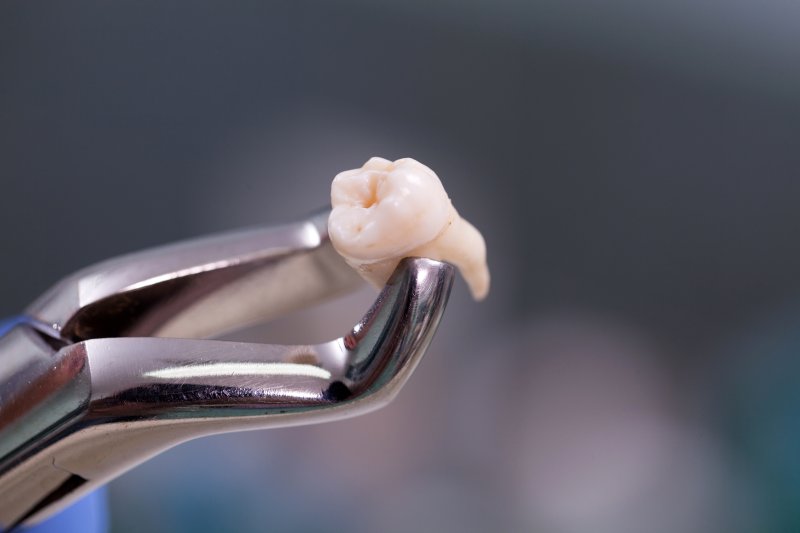
Has your dentist informed you that you need to have a tooth extracted? This is something that numerous patients are initially nervous about because they don’t know what to expect. There is all sorts of misinformation floating around the internet, and it is difficult to know what “facts” you can trust. Continue reading to learn about some of the most common tooth extraction myths and why they aren’t true.
Myth #1: Tooth Extractions Are Painful
This is probably the most common myth that you hear about tooth extractions. Many people expect it to be an excruciating visit to the dentist and horrible recovery period. The good news is that with modern dental technology and anesthetics, this isn’t the case these days. During this procedure, your dentist will numb the area with an anesthetic so that you won’t feel pain at all during the extraction. The process is fairly short. You might experience minor soreness and discomfort afterwards while you are recovering, but this can be treated with over-the-counter and prescribed pain relievers that are recommended by your dentist.
Myth #2: It Takes a While to Recover from Tooth Extractions
It only takes anywhere from 1 to 2 weeks for the socket to heal after an extraction, but most patients only feel lingering discomfort for a few days afterwards. When you carefully follow the instructions from your dentist, you will be back to your busy life fairly quickly.
Myth #3: Wisdom Teeth Are the Only Teeth that Need to Be Extracted
While this may be the case for some people, it doesn’t work this way for everyone. It is common to need to have your wisdom teeth removed, but not everyone does. Some people need to have additional teeth removed for one reason or another, such as severe decay, an injury, impacted teeth, or not enough room being available for all of the teeth to fit in the mouth comfortably.
Myth #4: You Don’t Need to Replace an Extracted Tooth
Many patients believe that they are in the clear once they have had their troubled tooth removed from their mouth, but this isn’t always the case. Depending on the reason for the extraction, you may need to have it replaced to prevent oral health problems in the future. When there is a gap in your smile, your other teeth will move around to try and fill the space. The jawbone will no longer be stimulated in that area, so it will shrink over time. Talk to your dentist about tooth replacement options so you can avoid dental problems in the future.
You may be stressed about your upcoming tooth extraction, but you have nothing to feal! You’ll be back to your busy life in no time!
About the Author
Dr. John White earned his dental doctorate from the University of North Carolina before participating in a two-year, post-doctoral residency program at Wake Forest University’s Baptist Hospital and Bowman Gray School of Medicine. His residency also included participation in a year-long externship hosted by the world-renowned Midwest Implant Institute in Columbus, OH. Today, he is a Master of the Academy of General Dentistry. For more information on tooth extractions or to schedule an appointment at his office in Asheville, visit his website or call (828) 684-3020.
